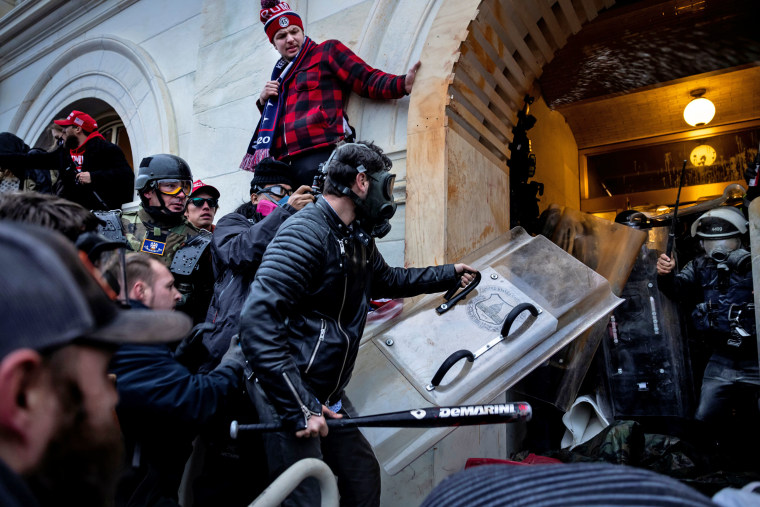It was 12 weeks ago when Attorney General Merrick Garland delivered high-profile remarks on the Jan. 6 attack. “The Justice Department remains committed to holding all January 6th perpetrators, at any level, accountable under law — whether they were present that day or were otherwise criminally responsible for the assault on our democracy,” the nation’s chief law enforcement official declared.
The rhetoric raised eyebrows, though it was soon followed by more behind-the-scenes work at the Justice Department. For outside observers, stretches of silence from Main Justice raise questions without answers: Is the investigation into the insurrectionist riot advancing? Widening? Intensifying?
Information is often in short supply, which makes it all the more notable when reports like this one from The New York Times land on the front page.
Federal prosecutors have substantially widened their Jan. 6 investigation to examine the possible culpability of a broad range of figures involved in former President Donald J. Trump’s efforts to overturn the results of the 2020 election, people familiar with the inquiry said on Wednesday.
According to the Times’ report, which has not been independently verified by MSNBC or NBC News, federal investigators are examining, among other things, “the push by some Trump allies to promote slates of fake electors.”
The Times specifically pointed to a grand jury sitting in Washington, D.C., which has issued subpoenas seeking information “about the effort by Trump supporters to put forward alternate slates of electors as Mr. Trump and his allies were seeking to challenge the certification of the Electoral College outcome by Congress on Jan. 6.”
As regular readers may recall, we’ve known for months that Republicans in multiple states created forged election materials, pretending to be “duly elected and qualified electors,” and sent the documents to, among others, the U.S. Senate and the U.S. Archivist, as if the materials were legitimate. They were not. Among the unanswered questions, however, is what kind of legal consequences there might be.
The answer is starting to come into focus.
What’s more, this is not the only revelation of note. The Washington Post also reported overnight:
The criminal investigation into the Jan. 6 attack on the Capitol has expanded to examine the preparations for the rally that preceded the riot.... In the past two months, a federal grand jury in Washington has issued subpoena requests to some officials in former president Donald Trump’s orbit who assisted in planning, funding and executing the Jan. 6 rally, said the people familiar with the matter, who spoke on the condition of anonymity to discuss an ongoing investigation.
The Post’s report, which has also not been independently verified by MSNBC or NBC News, added that the development “shows the degree to which the Justice Department investigation — which already involves more defendants than any other criminal prosecution in the nation’s history — has moved further beyond the storming of the Capitol to examine events preceding the attack.”
And that’s what makes the apparent revelations so notable. To be sure, we’re still in a wait-and-see mode when it comes to possible legal consequences for those higher up the political food chain. But the more federal prosecutors “substantially widen” their Jan. 6 investigation, the more likely it becomes that such consequences will ultimately exist.
Over the course of the 14 months, several hundred people have been charged with crimes related to the Jan. 6 attack on the Capitol, but nearly all of them have one thing in common: They’re relatively unknown, low-level figures who responded to Donald Trump’s dangerous lies.
There’s reason to believe they may eventually have some higher-profile company.

